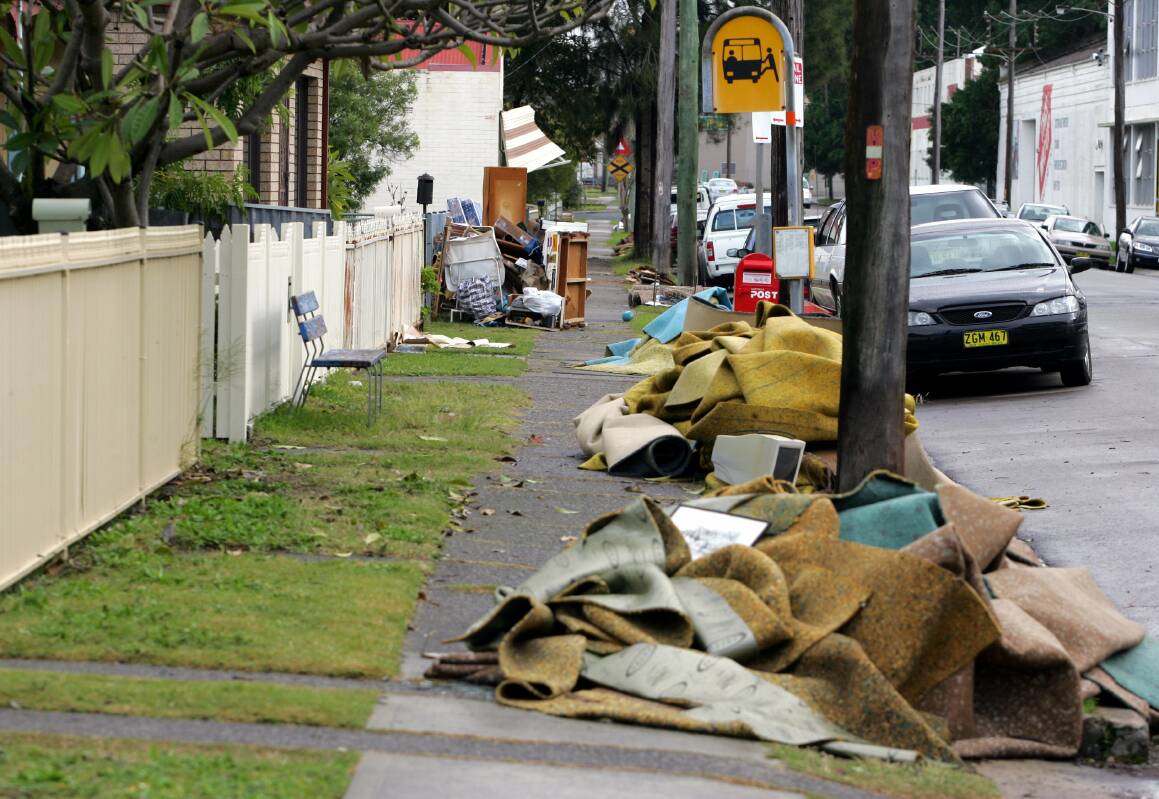
THE Insurance Council of Australia says Hunter households would save 15 per cent on their home insurance if the NSW government axed the Emergency Services Levy and found "a fairer way" to fund police, fire and related services.
In a report published today titled A Stronger NSW, the insurance council says NSW is the only Australian state with such a levy, with insurance customers in NSW paying almost three times as much in state taxes as their Victorian counterparts.
The insurance council says the levy is contributing to an estimated 13 per cent of NSW households going uninsured, which it says is double the rate of Victoria.
But while the council puts the blame on government, householders who spoke with the Newcastle Herald at the weekend said it was the substantial increases in the size of insurance premiums that was driving the falling rates of insurance coverage, and that insurance companies were "making a welter of the situation".
Householders told of the difficulties they experienced in gaining insurance, having to shop around extensively, with few insurers willing to cover them for flood risk even though they had not been flooded during the 2007 Pasha Bulker storm.
Former Newcastle councillor Aaron Buman, who owns a number of properties at Carrington and Mayfield, said insurance costs had gone "through the roof" in recent years, with a collective bill going from less than $60,000 to more than $90,000 and a likely increase this year to $150,000, if he could get the cover.
"To its credit, Newcastle council, after the Pasha Bulker storm, did a lot work on flood risks and flood maps," Mr Buman said.
"But talking to insurance brokers, the insurance companies seem to be taking advantage of that to say the risk is too high, and so they charge way more than before."
These claims were backed by an experienced Newcastle insurance broker who said that although insurance companies had been hard-hit in recent years with bushfires, floods and other natural disasters, the industry was using this as an excuse to lift premiums beyond what would be otherwise expected.
The latest ABS CPI figures show insurance costs rising by 2 per cent across the eight capital cities in the final three months of 2022 and by 5 per cent for the year. In contrast, the Newcastle broker said Hunter premiums were rising by 15 per cent to 18 per cent. He said NSW was the only state to still tax insurance premiums to fund emergency services.
"The government tells the industry how much it has to pay and lets the companies work out how to raise it," the broker said.
The typical charge was 18 per cent for residential and 30 per cent for commercial, 22 per cent for strata and 1 per cent for motor vehicles, plus 10 per cent GST and 9 per cent stamp duty.
The Insurance Council's chief executive, Andrew Hall, said yesterday that the Stronger NSW report was being released in the leadup to next month's state election to drive debate about the levy.
"The NSW emergency services levy weakens our collective capacity to recover from natural disasters and increases the burden on NSW taxpayers for financial relief," Mr Hall said.
"At a time when adequate insurance cover is more important than ever, home insurance customers in NSW are paying the most tax in Australia and this is leading to lower levels of insurance when compared to other states. The next NSW Government must find a fairer way to fund emergency services without having the burden fall directly on insurance policy holders."
In response, Treasurer Matt Kean said last week's half-yearly budget update added $2.6 billion in state-federal flood relief. With $3.5 billion in the June 2022 budget, the total was $6.1 billion over four years.
"While big insurance is entitled to maximise profits for its shareholders, insurers should acknowledge this comes at a cost to those who they won't insure at all," Mr Kean said yesterday.
"The lack of affordable options that meaningfully cover natural disasters means that other premium holders are paying higher fees for no reason."
Mr Kean said the emergency services levy helped maintain spending levels.
He said the government was doing its bit and the industry needed to stop "creating stressful situations where people are forced to give up their insurance due to the cost of trying to do the right thing and protect their homes, or simply can't access insurance at all".







